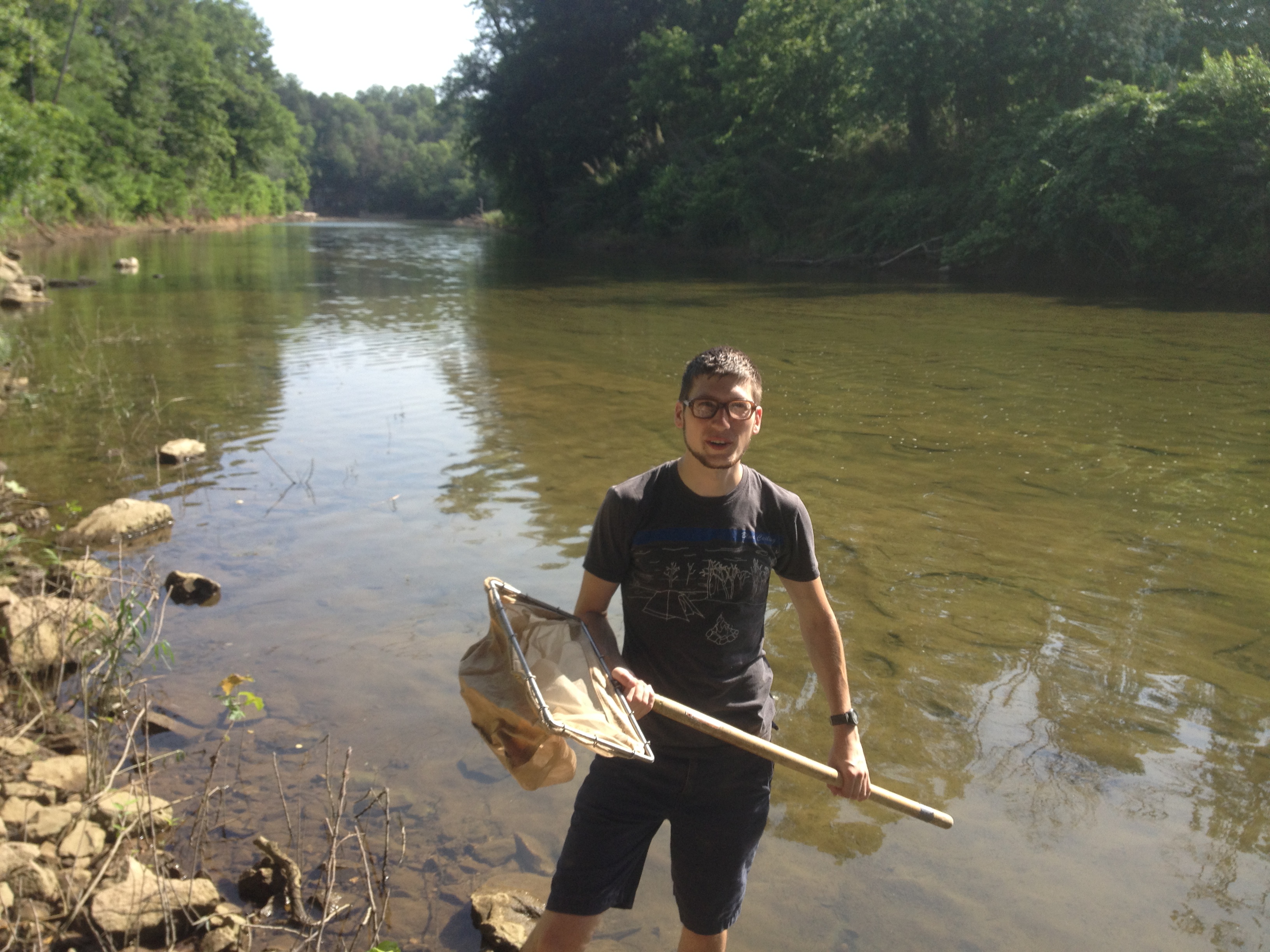
FAYETTEVILLE, Ark. – Students make many choices during their undergraduate years. For University of Arkansas biology senior Andrew Sanders, many of his choices included field research, both locally and internationally.
Sanders conducted stream ecology research through most of his years at the university.
“I love ecology,” Sanders said. “Everything is connected. It’s like a spider web. If you disturb one part of the spider web you’ll see the vibrations elsewhere.”
Sanders became a technician in Michelle Evans-White’s stream ecology laboratory. Evans-White, an associate professor of biological sciences in the J. William Fulbright College of Arts and Sciences, and her graduate students study primarily the roles of aquatic animals in the transfer of organic matter and nutrients in freshwater environments.
Sanders conducted research at an Organization for Tropical Studies biological research station in Costa Rica in the summer of 2012 and fall of 2013. There, he studied crustaceans and insects known as “shredders.”
“Shredders are a really important functional feeding group in temperate streams that break down all of the leaf material that falls from the canopy,” he said. “Dead leaves are too big and too hard for most organisms to eat. Without shredders, leaves would stay and build up in the stream. There aren’t shredding insects in tropical streams, so I looked at whether crabs and shrimps took over that job, or maybe people were misidentifying insects.”
Sanders’ study did not determine what the tropical equivalents of shredders were. His time in Costa Rica brought him other experiences, including assisting in a bullet ant study.
“Andrew has had a phenomenal run at the university,” said Cynthia Sagers, professor of biological sciences at the University of Arkansas and chair of the Organization for Tropical Studies’ membership committee. “He is the non-honors student who found himself through a research experience. His passion for the study of ecology, discovered in temperate and tropical streams, will soon translate to an Ivy League Ph.D. program. This is what undergraduate research can do.”
Sanders, who is finishing his coursework this summer, said he will continue to study aquatic ecosystems next fall when he begins a doctoral program in ecology and evolutionary biology at Dartmouth College, working with Brad Taylor, an assistant professor of biological science. Sanders said he may study insect larvae phenotypes in streams that are abundant with predators and streams in which predators are scarce.
“This could really alter nutrient movement at an ecosystem scale,” Sanders said, “which is something humans are really interested in because of nutrient pollution. A lot of nutrients go into the Mississippi River, and cause a huge dead zone in the Gulf of Mexico, algal blooms and fish kills. A lot of streams are meant to be low nutrients, and now humans are messing with that.”
Contacts
Leah Markum, intern
University Relations
479-575-5555,
Chris Branam, research communications writer/editor
University Relations
479-575-4737,